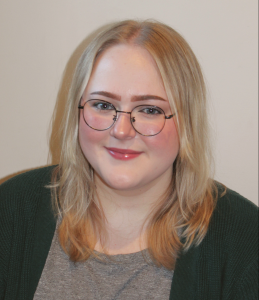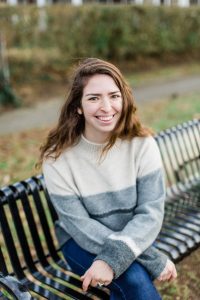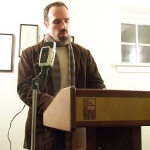Weekend Recs: Earth Day

Happy Friday, Wildcats! Falvey Library is delivering you another semester of Weekend Recs, a blog dedicated to filling you in on what to read, listen to, and watch over the weekend. Annie, a graduate assistant from the Communication department, scours the internet, peruses the news, and digs through book stacks to find new, relevant, and thought-provoking content that will challenge you and prepare you for the upcoming week.
Tomorrow, Apr. 22, is Earth Day, a day for celebrating our planet, raising awareness about climate change and climate injustice, and taking concrete actions to create a more healthy environment, whether it’s picking up trash, planting a tree, or taking political action for environmental justice. As climate change has gained a more significant place on our societal agenda, the Earth Day conversation has changed from learning the three Rs (reduce, reuse, and recycle, in that order) to discussing divestment from fossil fuels (including on Villanova’s campus) and sustainable practices.
In celebration of Earth Day, this weekend’s recs share some educational and interesting environmental content to help you get in the Earth Day spirit.

Photo by Elena Mozhvilo on Unsplash
If you have 2 minutes and 26 seconds…and don’t know the history of Earth Day and how it came to be, watch this video from The History Channel.
Bonus: if you want a comedic recap of the history of the actual earth, watch the Internet classic “history of the entire world, i guess” by bill wurtz.
If you have 10 minutes and 11 seconds…and don’t know how climate change disproportionately affects working class communities and people of color, watch this video. This is why “climate justice” is important, as it’s not just about the environment.
If you have 15 minutes…and want to learn how you can be more environmentally friendly at college, check out this article. Sometimes, it feels impossible to live environmentally friendly on a college campus, as you’re not in full control of your food, housing, and more, but these tips might help you make a small difference.
If you have 27 minutes and 42 seconds…and are inspired by Greta Thunberg and her climate activism, watch this interview where she discusses her book and her thoughts on the climate change conversation (and has some fun with Russell Howard).
If you have 1 hour and 26 minutes…and want to watch something for Earth Day that won’t stress you out too much, watch The Lorax, available in Falvey’s DVD Collection. Although it’s catchy songs and colorful animation might distract you, this dystopian climate fiction (cli-fi) film follows a boy living in an environmentally desiccated city as he tries to find and plant a real, living tree. Plus, it features Zac Efron, Danny DeVito, Taylor Swift, Ed Helms, Betty White, and Jenny Slate as voice actors.
If you have 1 hour and 32 minutes…and like solution-oriented documentaries, watch 2040, available online through Falvey. This documentary follows a filmmaker around the world as he searches for innovative ways to combat climate change.
If you have 4 hours…and have a free Saturday, take part in Villanova’s Earth Day of Service from 9 a.m. to 1 p.m. at Mendel Lot. If you’re interested in participating in some hands-on work to help better the Villanova environment, register here.
Bonus: for more Villanova-centered ways to celebrate Earth Day, check out these Villanova Earth Week activities and events

Photo by Noah Buscher on Unsplash
If you have 6 hours…and want to learn more about suburban wildlife, read Marzluff’s Welcome to Subirdia, available online through Falvey. We’re used to hearing how our suburban sprawl is horrible for the environment, and while it does have very real environmental consequences, this book discusses how some animals are actually adapting to and even thriving in suburban environments. It also gives some practical tips for making suburban neighborhoods more hospitable.
If you have 7 hours…and haven’t read this environmental studies classic, read Silent Spring by Rachel Carson, available at Falvey. This book famously called attention to the dangers of pesticides and sparked the creation of the Environmental Protection Agency (EPA).
 Annie Stockmal is a graduate student in the Communication Department and Graduate Assistant at Falvey Library.
Annie Stockmal is a graduate student in the Communication Department and Graduate Assistant at Falvey Library.





 Jenna Newman is a graduate assistant in Falvey Memorial Library and a graduate student in the Communication Department.
Jenna Newman is a graduate assistant in Falvey Memorial Library and a graduate student in the Communication Department.
 We aimed to answer this second question to provide evidence for existing geographic distributions of specific mangroves species and their projected future encroachment patterns.
We aimed to answer this second question to provide evidence for existing geographic distributions of specific mangroves species and their projected future encroachment patterns.
 rom the completion of my thesis, I have learned that the hardest part about research is narrowing the focus of your questions because analyzing the implications in the larger scheme of things comes later. I have learned that I respond well to a mentorship style that gives me the space to try and fail and re-try lab techniques, and that it is essential to take advantage to the resources available.
rom the completion of my thesis, I have learned that the hardest part about research is narrowing the focus of your questions because analyzing the implications in the larger scheme of things comes later. I have learned that I respond well to a mentorship style that gives me the space to try and fail and re-try lab techniques, and that it is essential to take advantage to the resources available.